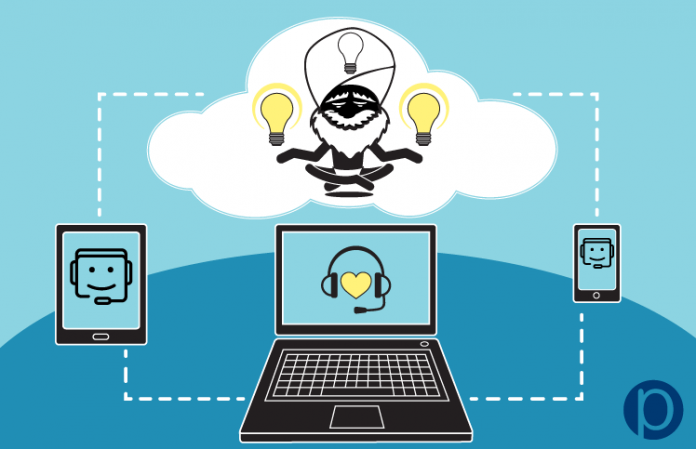
I believe that most of us are familiar with the idiom-like phrase, “Don’t worry—be happy,” from the very popular song by Bobby McFerrin released in 1988. You may not know that the song got its title from a famous quote by Meher Baba, an Indian mystic and spiritual master (1894–1969). Baba often used the expression “Don’t worry—be happy” when cabling his followers in the West. He also communicated variations of the sentiment, such as, “Do your best. Then, don’t worry—be happy.” This addition indicated a belief about taking responsibility for situations by simply doing your best.
Let’s begin with the first part of the expression: “Do your best.” When we do our best, we are likely to enjoy certain benefits and successful outcomes. Conversely, things may come out poorly and we learn what we can do to improve; thus our skills and competencies expand. Both are pretty good outcomes!
What percentage of people do you suppose are, in fact, doing their best at their job every day? Hmm… tough question. It is tough because, often, we see people who we KNOW can do better. Yet for reasons largely unknown to leadership, they hold back. This is a real problem. When talent is deliberately held back, it does not grow and it shrivels up like a raisin in the sun. Sadly, people who have issues with their job, employer, boss or peers deliberately don’t give all they have to the activities and tasks they are assigned. They hold back their talent. What these folks may not realize is talent will atrophy in this scenario and they are ultimately left with a dry well.
You can see that Baba’s intent with “Don’t worry—be happy” was greater than simply telling yourself not to worry. It was really based on first doing your best and then not worrying because you have taken responsibility by knowing that you did your best.
Worry is an awful waste of time. I find that it often fits into one of two categories: Worrying about something that has already happened (which cannot be changed) or worrying about something that has not happened (and may not ever)! Some people spend inordinate amounts of time worrying over “what ifs.”
We need to pay attention to our own vocabulary and become aware of articulating phrases that tip us off to tumbling into the abyss of worry. And “what if” is a BIG one. What if I lose my job? What if they sell the company? What if I don’t get that promotion? Well, how about this… what if none of that happens? Nothing has been gained. What is lost is peace of mind and valuable energy which would be better spent on doing your best in situations with big payoffs like learning and growing skills and competencies. What makes us happy is growth! And we are all, in fact, responsible for such growth.
Growth is movement fueled by curiosity and learning. Folks engaged in genuine learning are not typically worriers. They question, search and learn which fuels “happy,” not “worry.” The contact center industry offers a lot of material to learn from. Make it available to your teams; encourage learning, questions and discussions. Watch the transformation take place.
When we pay attention to our internal dialogue, we are able to detect speech patterns that tip us off to our own blueprint—whether it is doing our best or falling into a pattern of worry. If we are interested in pursuing a talent-enhancing, worry-free approach to our day’s work… simply paying attention to the language we use to describe events and experiences will allow us to strategize a plan to interrupt those thoughts that lead us to waste time with worry. Instead, we can “be happy.”
As leaders of the customer experience, it is within our coaching canopy to evaluate our team’s tendencies toward being worried or being happy. This is only successful when leaders have adopted an approach that encourages and rewards those folks who genuinely demonstrate they are, in fact, doing their best. At the same time, they must resist the urge to indulge in worry, rumor and vexation.
Lead your teams to a basic standard of “do your best” which will lead them to “don’t worry—be happy.”



